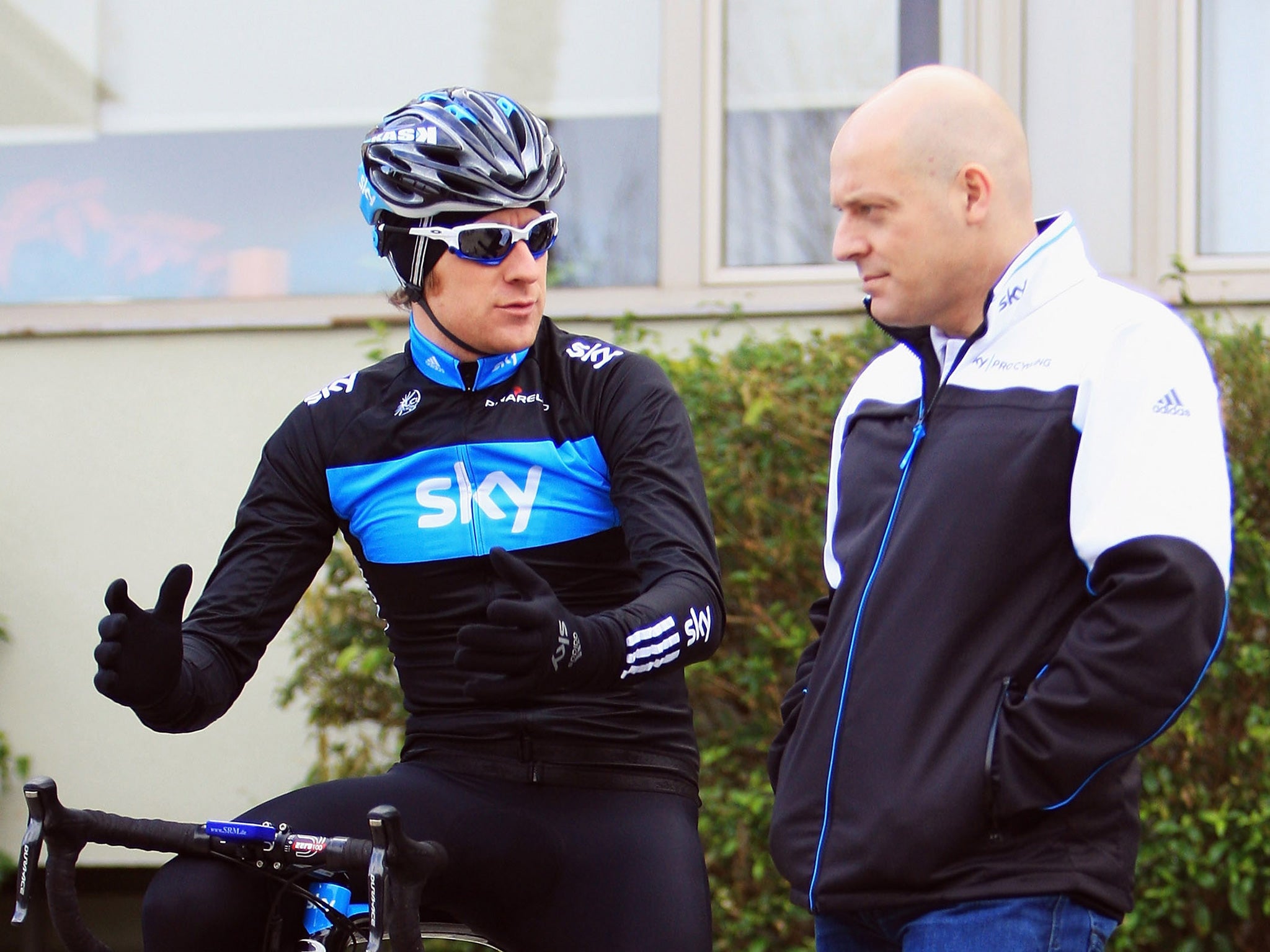Sir Bradley Wiggins: Sir David Brailsford defends cyclist's use of TUEs
A leak by the hacker group Fancy Bears last week revealed that Wiggins received TUEs for triamcinolone, a banned steroid

Sir David Brailsford has defended Sir Bradley Wiggins and insisted that no anti-doping rules were broken by the cyclist's use of a banned steroid.
A leak by the hacker group Fancy Bears earlier this month revealed that Wiggins received three therapeutic use exemptions (TUE) for triamcinolone, an anti-inflammatory drug, before major stage races.
The drug, which Wiggins claims was used to combat allergies and respiratory issues, is known to enhance athletic performance and is included on the World Anti-Doping Agency's list of banned substances.
Brailsford, however, denies that Wiggins used the drug for such a purpose. "It was not being used to enhance performance," he told BBC Sport.
"I have known Bradley a long time and he is an asthma sufferer and he has struggled with allergies for as long as I have known him.
"I know that at the time there was a recommendation to see a specialist, he went to see a specialist and was then given permission by the authorities.
"I trust and believe in the integrity of that process."
Wiggins received TUEs prior to the 2011 and 2012 Tours de France - the latter of which Wiggins won - and the 2013 Giro d’Italia, while racing for Brailsford's Team Sky.
I have known Bradley a long time and he is an asthma sufferer and he has struggled with allergies for as long as I have known him.
On Sunday, Britain's most decorated Olympian gave an interview to the BBC's Andrew Marr Show, in which he claimed that he was not attempting to gain an "unfair advantage" and that his use of the drug was designed to "put himself back on a level playing field".
In his 2012 autobiography, Wiggins insisted that he strictly observes the UCI's 'no needles policy'. In a later book, he claimed: "In British cycling culture, at the word 'needle' - or the sight of one - you go, 'Oh s***'."
TUEs allow athletes to take an otherwise banned substance in order to treat a medical condition, provided that there is no other effective treatment.
Subscribe to Independent Premium to bookmark this article
Want to bookmark your favourite articles and stories to read or reference later? Start your Independent Premium subscription today.

Join our commenting forum
Join thought-provoking conversations, follow other Independent readers and see their replies